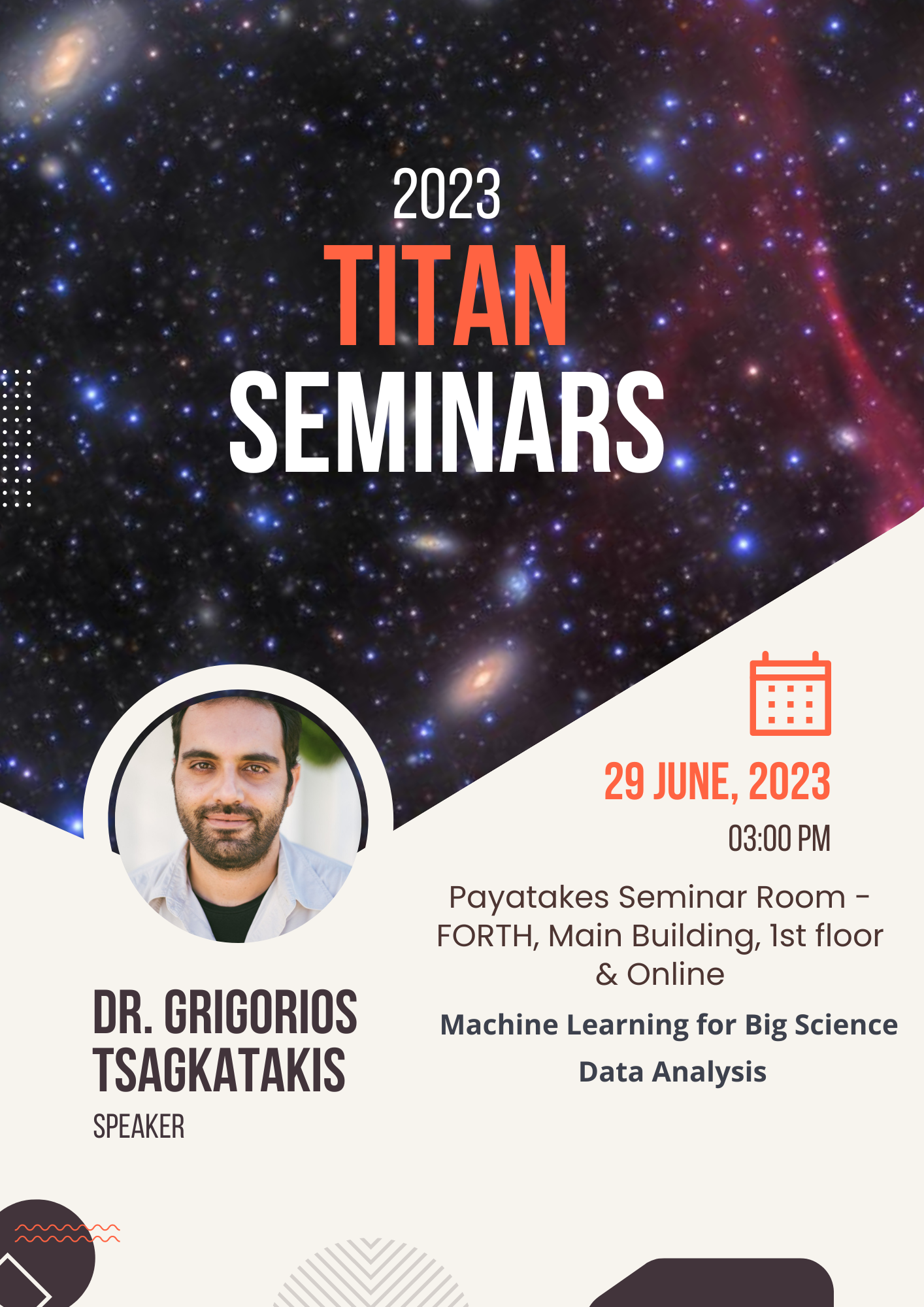
Speaker: Grigorios Tsagkatakis (CSD-UoC & ICS-FORTH)
Host: Yiannis Pantazis
Location: Payatakes Seminar Room - FORTH, Main Building, 1 st floor
Date: 2023-06-29
Time: 15:00
Abstract:
A wealth of scientific instruments, from microscopes monitoring the neuronal activity of the brain to orbiting telescopes trying to estimate the distribution of dark matter in the universe, is offering unprecedented views of our cosmos. Understanding the massive amounts of data and observations requires a rethinking of traditional scientific data analysis approaches, through the introduction of Big Science Data analytics. At the same time, the past ten years have witnessed a revolution in how to understand and infer meaningful patterns from massive amounts of data through the introduction of data-driven machine learning models. The aim of this talk is to present a number of challenges associated with introducing machine learning approaches for analyzing massive scientific data including topics like handling high dimensional observations, quantifying uncertainties, and dealing with data-related issues like class imbalance or missing observations.
Approaches for addressing these challenges will be discussed in the context of different scientific domains including Earth Observation, Astrophysics, and Neuroscience.
Zoom Info:
https://us06web.zoom.us/j/7761040361?pwd=dEs4TFZxck01Vk5PQWR1TUxKdndwUT09
Meeting ID: 776 104 0361
Passcode: 787479
Short Bio:
Dr. Grigorios Tsagkatakis is an Assistant Professor at the Department of Computer Science of the University of Crete and an affiliated researcher with the Institute of Computer Science of FORTH. He received his BEng and MS degrees in Electronics and Computer Engineering from the Technical University of Crete, Greece in 2005 and 2007 respectively, and his Ph.D. in Imaging Science from the Rochester Institute of Technology, New York, in 2011. His work has been funded by different agencies including a European Commission Marie Skłodowska-Curie fellowship with the Department of Electrical and Computer Engineering at the University of Southern California, as well as projects with ESA and NASA. His research focuses on topics related to signal/image processing and machine learning with applications in remote sensing, astrophysics, and biology.
